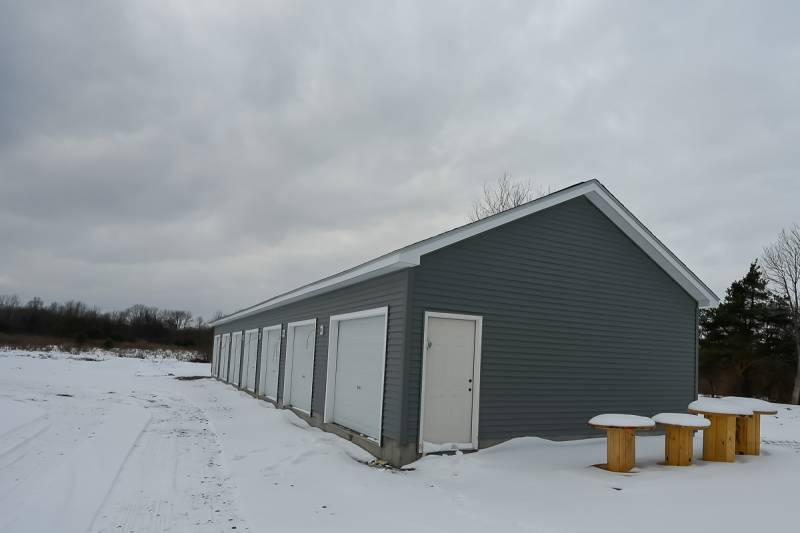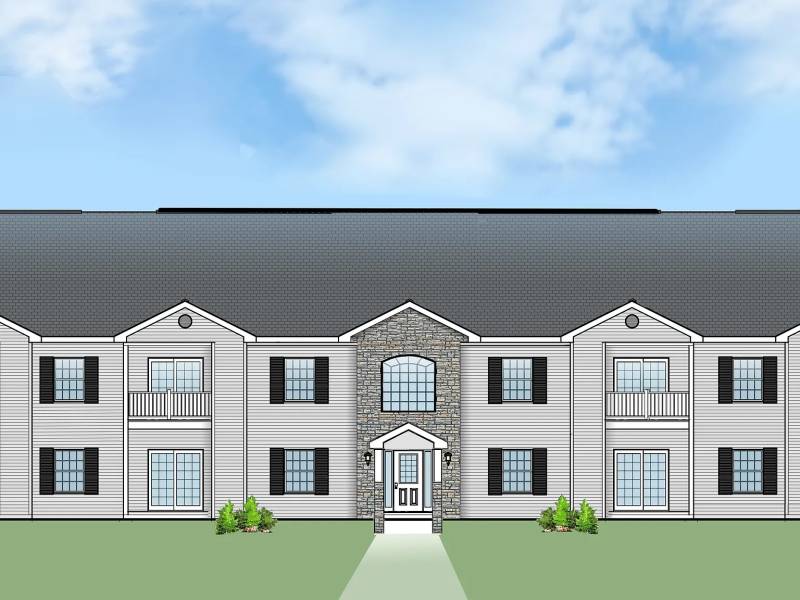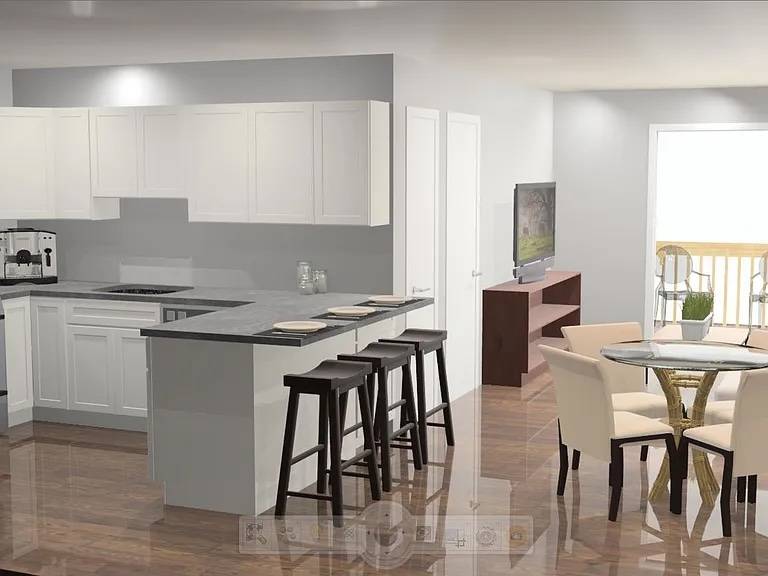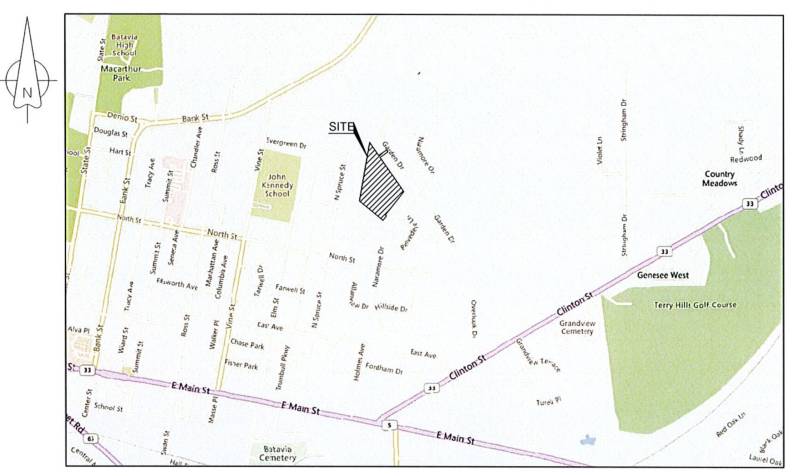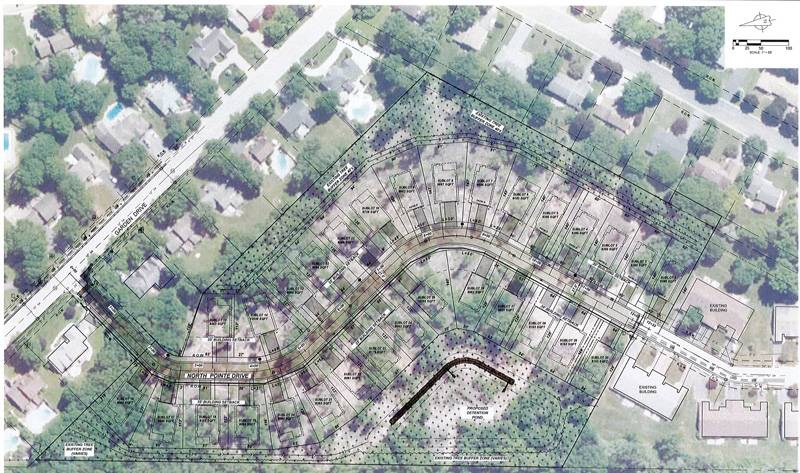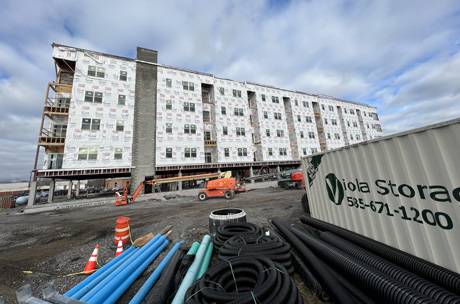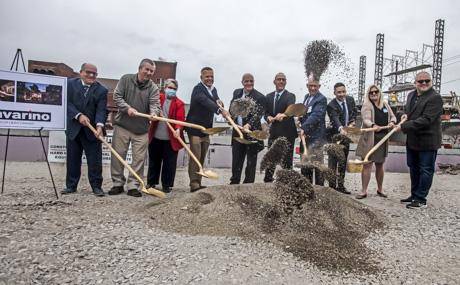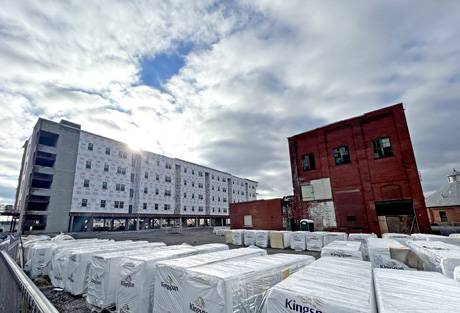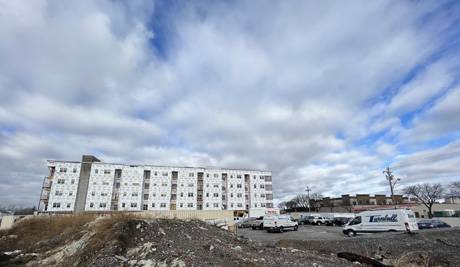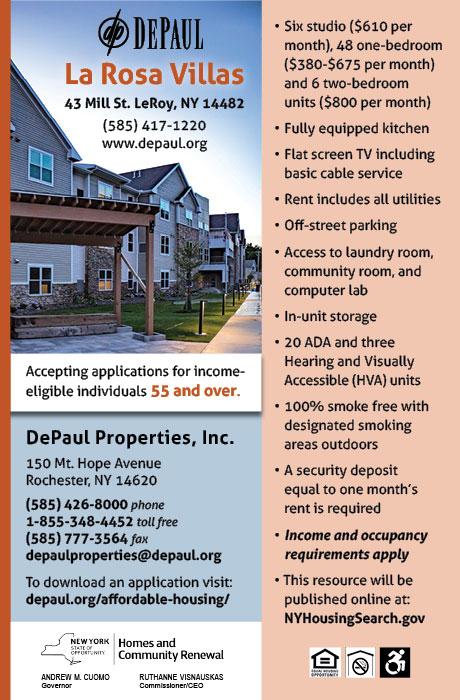Major new apartment complex in Pembroke near completion on first set of units
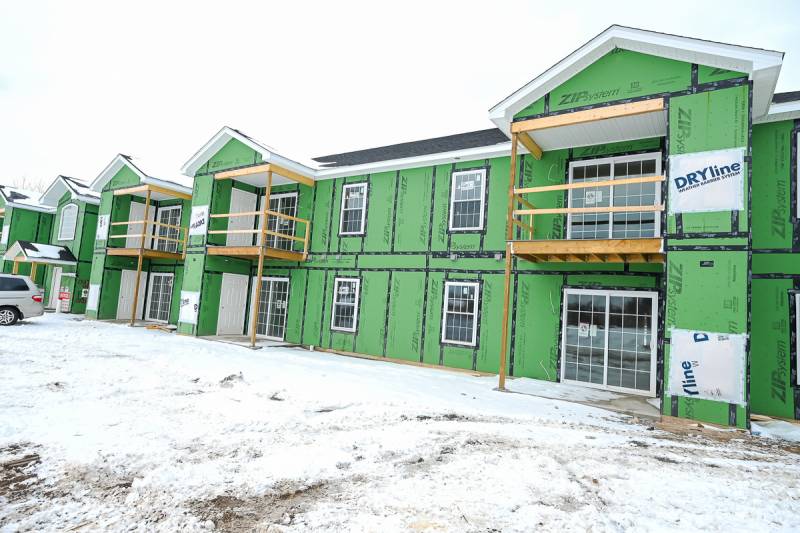
The first phase of a $16 million apartment complex on Alleghany Road in Pembroke is nearing completion, and reservations for one- and two-bedroom apartments are being accepted.
The anticipated move-in date for new tenants is April 1, said developer Michael Schmidt.
Schmidt owns a parcel at 8900 Alleghany Road that has been approved for four buildings. Each phase, each building, consists of eight one-bedroom units and 16 two-bedroom units for a total of 96 market-rate units at build-out, along with 168 parking spaces and garages.
"We're ready," Schmidt told The Batavian during a tour on Friday of the complex under construction. "We took our first reservation today; somebody who wanted this lower one down here, we just walked past. So we're gonna let people pick (what unit they want)."
The rentals are currently listed on Zillow.
The one-bedroom units are 680 square feet and rent for $1,295 a month. The two-bedroom units are 900 square feet and go for $1,595.
That doesn't include utilities but free wi-fi and basic television service (a QR code on each unit's router allows the tenant to purchase premium services).
When entering the one bedroom, you will be essentially walking into the kitchen, which contains a refrigerator and an island with a stove and dishwasher. The unit will also have a microwave oven.
The bathroom is 3/4 (shower only, no bathtub).
On entering the two-bedroom, you step into the dining area. Between the kitchen and dining area is a countertop that can seat three or four people. It will also contain a refrigerator, stove, microwave, and dishwasher. It will have a full bath.
Both units contain a stacked clothes washer and dryer.
There is central air in all units.
Tenants will have the option to rent a storage closet in the building or a garage.
The floors will be covered with vinyl tile, with carpet in the bedrooms, over a poured gypcrete. The gypcrete provides both fire protection and soundproofing. There are also 12-inch beams between the floors, Schmidt said, providing further soundproofing. The walls use resilient channels to baffle sounds between units.
"That's going to be really good on sound, super efficient," Schmidt said. "We've got 900 square feet in the two bedrooms and 680 square feet in the one bedroom, so that's a nice size. It's not overly big, but they're super high efficiency, so I think people will be really happy."
Tenants will be allowed to own a small dog or cat.
With cabinets and other fixtures arriving in the next few weeks, it won't be long before the units are finished, and Schmidt said he will furnish two units. For one thing, that will give him demo units for photos and virtual tours, but he also anticipates there will be future tenants who want furnished units, especially to support workers at Darien Lake and WNY STAMP.
Whether Schmidt constructs the other complexes on the parcel will depend on whether the demand he anticipates for apartments on the Route 77 corridor materializes.
The project, on an 8.2-acre lot, which had an initial cost estimate of $15 million, is supported by the Genesee County Economic Development Center with a sales tax exemption on building materials worth $739,200, a property tax abatement of $2 million, and a mortgage tax abatement of $130,000.
The town has been great to work with, Schmidt said. Stringent but fair.
"I haven't gotten a lot of love from them, and I mean that sincerely," Schmidt said. "I like Jim (James Wolbert, code enforcement officer) but he hasn't been like wink and nod. There's been no 'Hey, we want the project so we're gonna let you slide out of stuff.' He's busted our chops on every single nit."
It isn't that way in other jurisdictions, Schmidt said. For example, even though the garage complexes have no electric and no heat, the walls between fire units must be fire-rated.
"Nobody does that," Schmidt said. "All those units will be fire-rated. There's no electric, no heat, but Jim's in charge. If you want to have a building, the inspector always wins, so what he wants, he gets. He hasn't cut us any breaks but that's okay. You can't be upset with somebody for doing their job."
Previously:
- Town planners give go-ahead to travel center and apartments proposed for Pembroke
- Shadow of Ellicott Station throws shade on apartment plan for Pembroke, developer promises no low-income housing
- Developer explains why he's seeking GCEDC assistance on 96-unit apartment complex in Pembroke
- Pembroke supervisor sees the need for 96-unit apartment complex, but zoning code should be reviewed
- Pembroke supervisor sees need to 'pump the brakes' on apartment development, modify zoning code
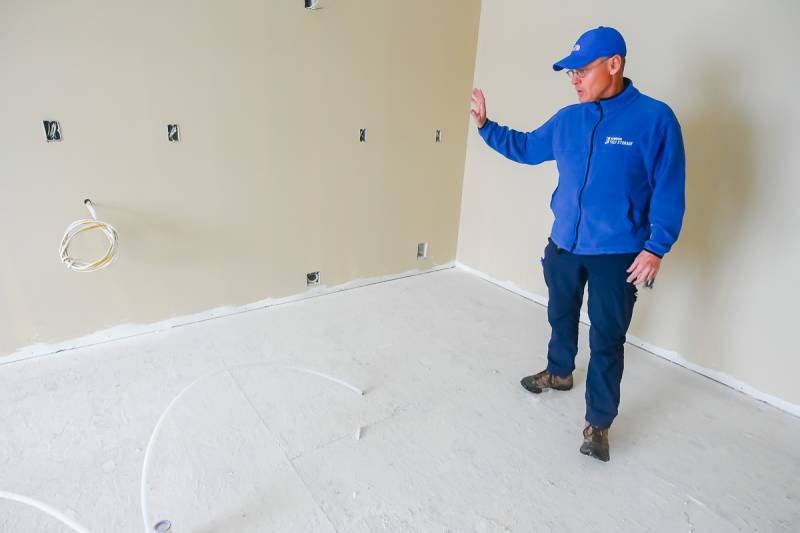
Photo by Howard Owens.
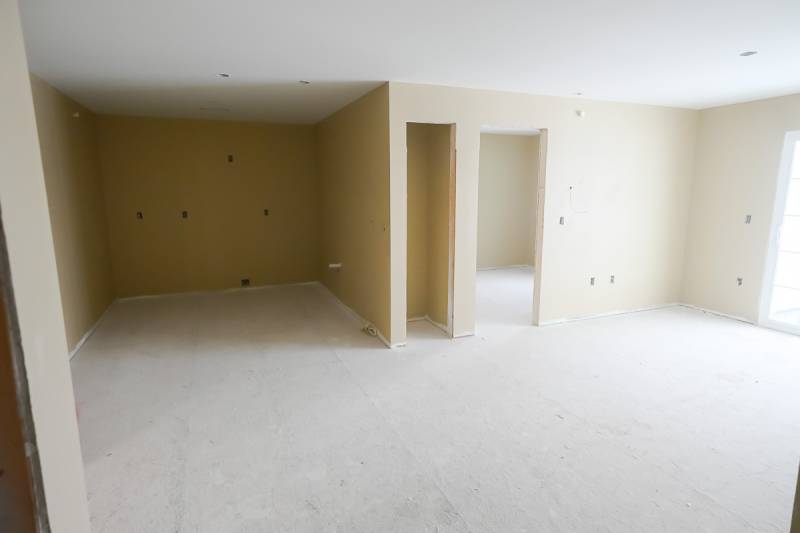
Photo by Howard Owens.
